Check out more content with Ryan Holiday:
- (January 27, 2020) Ryan Holiday: Stillness, stoicism, and suffering less
- (March 27, 2020) Ryan Holiday: Finding stillness amidst chaos
In this episode, Ryan Holiday, author of Stillness is the Key, shares the profound impact that stoic philosophy has had on his personal life and his career as a successful writer. Ryan stresses the importance of stillness in a modern world set up to encourage the opposite and lays out the best strategies to develop stillness in your life. He also explains the destructive nature of being driven by ego, as well as the perils of jealousy and anger, and provides practical steps you can take to avoid those harmful states.
Subscribe on: APPLE PODCASTS | RSS | GOOGLE | OVERCAST | STITCHER
We discuss:
- Has a more connected world improved or worsened our lives? [2:15];
- Consequences of an overly secure life, living in the present, & the misconception of unlimited time [5:45];
- Stoicism 101: The definition and origins of stoic philosophy [15:45];
- Ryan’s career transition into writing, and his take on what makes a book or business successful [26:45];
- Storytelling—The upside and downside of telling stories and self narrative [36:15];
- Does achieving success have to come from a place of craving and proving others wrong? And what are the costs of building a legacy? [38:45];
- Ego—confusing ego with confidence, signs your ego is showing, & antidotes to the negative effects of ego [52:45];
- Ryan’s advice to Peter about writing (and finishing) his book [1:06:30];
- Stillness—what it is, how it compares to meditation, & the obstacles to achieving stillness [1:10:30];
- Ryan’s morning routine, relationship with his smartphone, and how he avoids falling victim to the trappings of technology and a hyperconnected world [1:17:40];
- The perils of jealousy and envy [1:24:15];
- How to live in the moment in a modern world not designed for stillness [1:32:15];
- How the idea of “dying well” can help you live better [1:36:00];
- How has fatherhood impacted Ryan’s philosophies on stillness and living in the moment? [1:39:45];
- How to make your favorite day your every day [1:42:00];
- The most reliable strategies for developing stillness [1:47:30];
- Anger—what the stoics say about anger, outrage in politics, & why more anger isn’t the solution [2:02:00];
- How to follow Ryan’s work [2:12:00]; and
- More.
Has a more connected world improved or worsened our lives? [2:15]
-Peter starts by asking Ryan about life on a farm
- Ryan lives in a home on a farm for part of the year outside of Austin, TX
- The internet is not good and the phone signal is lost if you leave the house
- The silence created by not have a connection to the world: “It creates a sort of an artificial silence, which is great.”
–How have smartphones improved or worsened our lives?
- Ryan comments that when smartphones first came out if felt like it gave us more freedom
- But as the technology improved, you can now be reached at all times whether texting, calls, emails, and social media channels
- “Once I was carrying [smartphones] around in my pocket and I could always access them, they were always there, that’s when it became much worse.”
-Peter’s take:
- There is a balance, an optimization point, that was missed and we’ve now gone too far.
- We still have more to gain on the max if the objective is making money for the companies that produce things like that (but it’s more complicated from a personal perspective)
Consequences of an overly secure life, living the present, & the misconception of unlimited time [5:45]
What is the strangest or most surprising thing about a farm? …
{end of show notes preview}
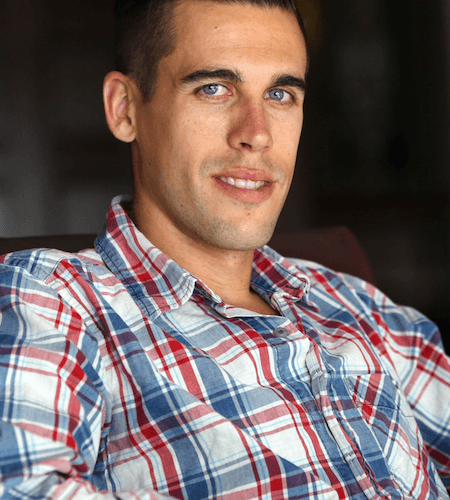
Ryan Holiday
Ryan Holiday is the bestselling author of Stillness is the Key, Trust Me, I’m Lying, The Obstacle Is the Way, Ego Is the Enemy, Conspiracy and other books about marketing, culture, and the human condition. His work has been translated into over 30 languages and has appeared everywhere from the New York Times to Fast Company. His company, Brass Check, has advised companies such as Google, TASER, and Complex, as well as multiplatinum musicians and some of the biggest authors in the world. He lives in Austin, Texas.
Websites:


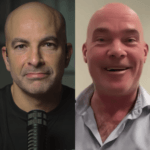
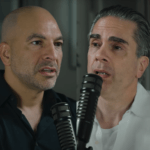
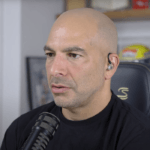
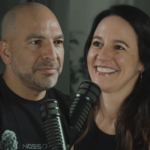
Love the podcast !
My question is why say back to Normal, if what was discussed was taking control of ones life isn’t being in the moment the normal?
Really enjoyed your ryan holiday episode. Great content. Keep it up.
I was unfamiliar with the philosophy of stoicism, but was struck with the similarities to Buddhist philosophy which I follow. The transcendence of obstacles, the stillness/meditative aspects, the disarming of the ego and the 5 hindrances in Buddhism are common thought for both.
Form Wikipedia, I looked up trade at the peak of the Roman empire with India and apparently at the time of Augustus, there were interactions between the two cultures. Could it be that there was a Buddhist influence on stoicism?
Since listening to Ryan on the podcast Iv got the book The obstacles is the way, I can’t put it down.
This is a question about the email Peter sent out 2/2/20
How are the death rates calculated? Almost everyone rides in a automobile. A small percentage of the population flies often. My question is if those numbers are general population flying my be extremely dangerous. Every person basically has an equal opportunity of dying from heart disease, cancer, lightning strike … but I’m not sure how you’d calculate private aviation (me) against something like heart attack or auto accounts. Your thoughts??
thank you for all the great information.
I don’t want to be too presumptive, but I think you’re conflating anger and rate in this podcast. Here’s another take by Dr. Maté:
https://www.theglobeandmail.com/life/anger-management/article1113421/
Peter, I read the book “Stillness is the Key” by Ryan Holiday you suggested. I usually like what you suggest and offer to us, but not this one.
Stoicism is a philosophy of personal ethics informed by its system of logic and its views on the natural world. It is not a religion.
The author presents his version of Stoicism but steers the listener towards accepting a higher power, God. He says you have got to believe in God. He uses entices us with the philosophy of Stoicism but ties each principal back to religion. He should stick with his passion for religion and leave Stoicism alone. False advertising.
The author presents his personal opinions about many issues. You must be married to have job and fulfillment. You must not live on your own. He says it’s sad a woman focused on her career rather than have babies. This is not Stoicism, this is the philosophy of the author which I don’t share and many other don’t either.
The author reads the book, droning on with his monotony self righteous voice. This is both boring and unsettling, at least to me.
Readers would be much better off foregoing this book and reading instead valid books about Stoicism such as “A Handbook For New Stoics” which is excellent, or”The Little Book Of Stoicism”, both are real books about Stoicism not this fake book.